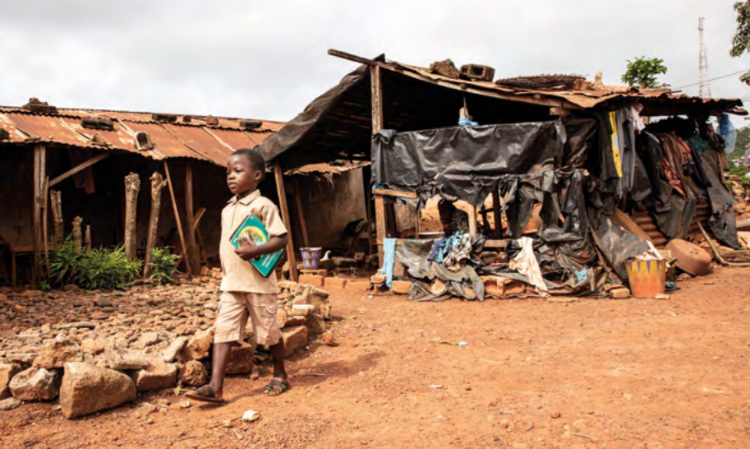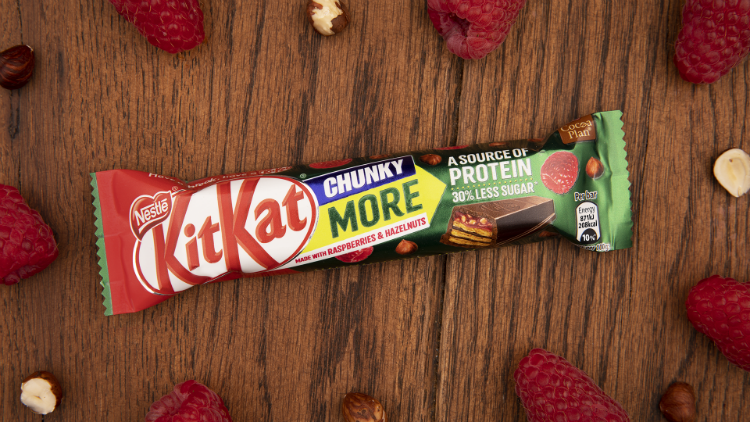Since 2015, all the cocoa used by Nestlé UK and Ireland has been sustainably sourced through the Nestlé Cocoa Plan, of which the Rainforest Alliance is a longstanding partner.
"We look forward to increased collaboration as we continue to support Nestle’s global cocoa sourcing commitments through our work to make the cocoa sector more sustainable," it said in a statement.
We’re delighted Nestlé is strengthening its position in the cocoa sector and unifying its responsible cocoa sourcing commitment across all of its portfolios -- Alex Morgan, chief markets officer, Rainforest Alliance
The Rainforest Alliance’s cocoa certification programme is the world’s largest scale initiative to drive more sustainable cocoa farming and has recently been strengthened with stricter audit rules and enhanced traceability and performance monitoring systems.
Alex Morgan, chief markets officer, Rainforest Alliance, said: “We’re delighted Nestlé is strengthening its position in the cocoa sector and unifying its responsible cocoa sourcing commitment across all of its portfolios. This announcement comes at an exciting time for the Alliance having just released a new seal and due to publish the new, improved Sustainable Agriculture Standard this month.
“Our certification programmes continue to connect companies, consumers, farmers and businesses committed to protecting the health of ecosystems, workers and communities by using social and market forces to protect nature and improve the lives of food producers.”
Clear metrics
Morgan said that in order to drive supply chain accountability, the improved certification programme also features clear metrics on shared responsibility. “These improvements reflect the Rainforest Alliance’s continued commitment toward addressing the core challenges in the cocoa sector: farmer livelihoods, child labour and deforestation. ”
The Rainforest Alliance said cocoa producers should have the knowledge, resources and incentives to produce in an environmentally, economically and socially responsible fashion. In addition, all supply chain actors should be able to fulfil their role through sourcing and pricing practices that promote resilience from price volatility and climate change.
We are aware that the move will have an impact on some farmers, and we are working hard to mitigate this -- Simon Billington, global technical manager for Nestlé Confectionery
One mechanism to do so is the required premium on certified cocoa purchased in Côte d’Ivoire, where Nestlé will continue to source from the same certified farm groups.
Nestlé's surprise decision to ditch Fairtrade led to Michael Gidney, CEO of the Fairtrade Foundation, urging the company to reconsider: “We urge Nestlé: listen to farmers, do not choose this moment of global crisis to exacerbate the inequalities in the cocoa industry. Be part of the solution and keep KitKat Fairtrade,” he said in a statement.
Simon Billington, global technical manager for Nestlé Confectionery, said: “Our expanded partnership with the Rainforest Alliance underlines our commitment to sustainable cocoa sourcing throughout our global supply chain.
“We are aware that the move will have an impact on some farmers, and we are working hard to mitigate this. Nestlé will be maintaining the same level of cocoa spend for the 2020-21 season. We will be investing in a series of initiatives to support farmers and our cocoa growing communities over the next two years, including £1m to develop an industry-first living income pilot and a further £500,000 on community projects.
“We want to continue working with our Fairtrade farmers and we will pay for them to get to the level required by the UTZ standard, which since 2018, has been part of the Rainforest Alliance certification programme. If farmers are not able to do this in time for the next crop, we will also provide them with financial support for the coming year.
“Our successful partnership with Fairtrade is ending as we harmonise our certification for sustainable sourcing internationally. Over the past 10 years, Fairtrade and KitKat, together with millions of KitKat lovers in the UK, have supported cocoa farmers in the Cote d’Ivoire. We are grateful to the Fairtrade organisation and proud of the work that KitKat has supported with them."
Atse Ossey Francis, president of the Ivorian Fair Trade Network Administrative Committee, said: "It is with deep regret and deep concern that we have learned that after proudly producing cocoa for KitKat in the UK for a decade, 16,000 small cocoa farmers in Côte d'Ivoire will no longer enjoy the benefits of selling their cocoa on Fairtrade terms. This change represents a loss of £1.95m of Fairtrade premium for cocoa and sugar producers. This is a devastating blow for some of the world's poorest producers, many of whom live on less than a dollar a day.”
Nestlé has committed to sourcing 100% of the cocoa it uses for confectionery worldwide from the Nestlé Cocoa Plan by 2025.
The Rainforest Alliance also said it encouraged all actors in the global cocoa supply chain to take a more proactive role in creating improvement through stronger interventions.



